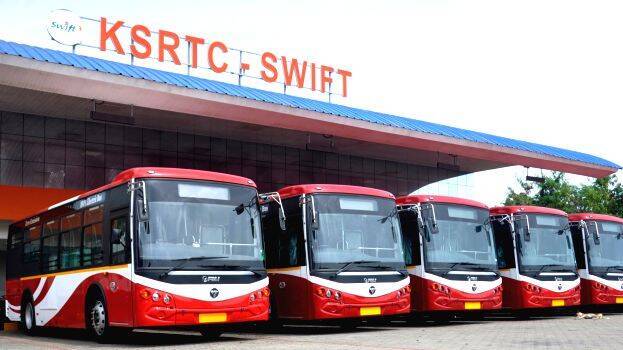

Electric buses are one of the good services that people can avail to travel to different parts of the capital city at a low cost. New transport minister Ganesh Kumar's announcement that it would be stopped suddenly came as a shock to the city dwellers. The minister said that the reason for stopping the e-bus is that it is not profitable and those who made it and those who bought it are not sure how long it will last. To buy an electric bus, one crore rupees is required, and for a diesel bus, 24 lakhs is enough. The minister added that the corporation can survive only if the expenditure is minimized and the revenue is increased.
However, later reports in the media along with the figures proved that the figure given by the minister was untrue. The first e-buses were launched in the capital last April. According to the annual report of KSRTC itself, there was a profit of Rs 288.91 lakh till December. With this, the minister's argument collapsed. In the current scenario, the e-bus expenditure for one kilometre is Rs 28.45. This amount includes salary and other expenses. A revenue of 36.66 rupees is generated by the e-bus per kilometre on average. That means a profit of Rs 8.21 per km. After the release of the report, some MLAs of the ruling party and party secretary MV Govindan himself came out against the minister's announcement.
The service of electric buses is one of the good measures implemented by former transport minister Antony Raju. The new minister's statements came mocking the former minister when the city residents happily accepted the busses and started travelling in it. The new minister should have had the maturity to avoid it. In a sense the controversy was good. With the controversy, the CPM intervened and made it clear that policy matters are not decided by the minister alone, but by the cabinet collectively.
One of the biggest problems faced by the cities is air pollution. It can lead to various diseases. The overabundance of diesel buses will only add to such pollution. The Center is moving forward with reforms aimed at removing diesel vehicles from the roads by 2030. It is not right to have a decision contrary to that in Kerala. Other services of KSRTC are unprofitable, but not electric buses. If we follow the Minister's logic, the first thing that should be stopped is the service of such diesel buses, which may not happen. Kerala is to get 950 more e-buses under PM E-bus Seva, a centrally-initiated scheme. These buses will be given to 10 cities. 60 percent of the cost is borne by the Centre. It is not the stubbornness of the minister that should prevail here. If this is lost, its benefits will be lost to the people of Kerala. So it can be expected that the cabinet will make a decision favorable to the people.